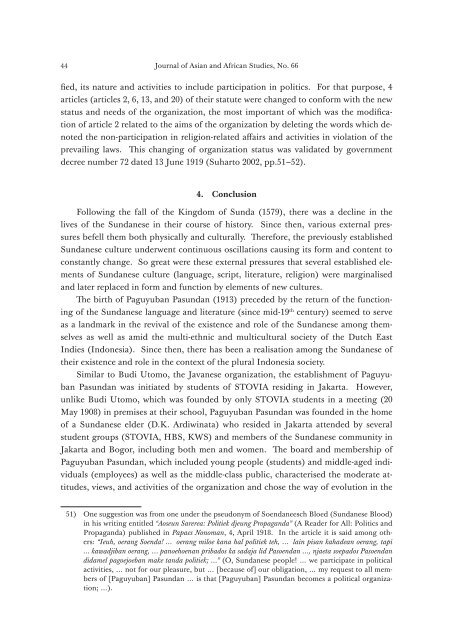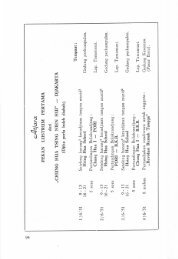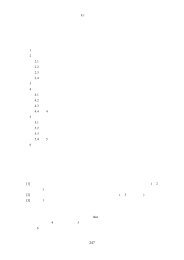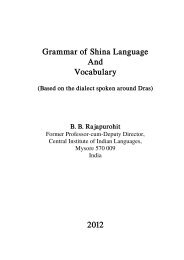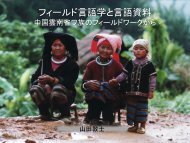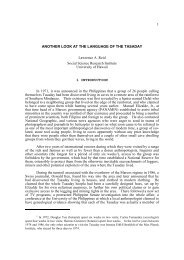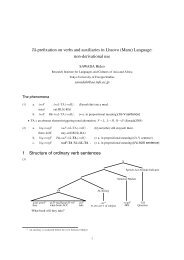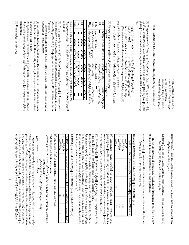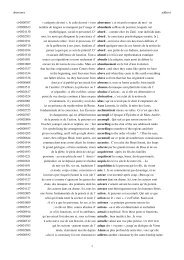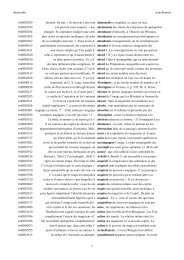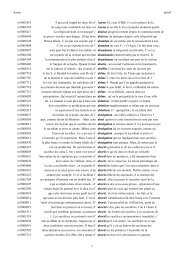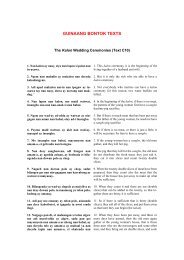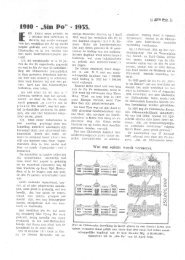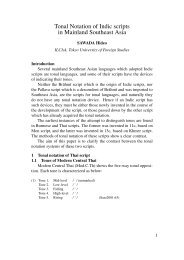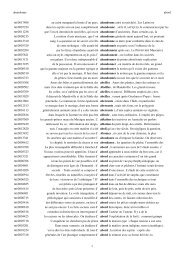ç® æ¬¡ - æ±äº¬å¤å½èªå¤§å¦ã¢ã¸ã¢ã»ã¢ããªã«è¨èªæåç 究æ
ç® æ¬¡ - æ±äº¬å¤å½èªå¤§å¦ã¢ã¸ã¢ã»ã¢ããªã«è¨èªæåç 究æ
ç® æ¬¡ - æ±äº¬å¤å½èªå¤§å¦ã¢ã¸ã¢ã»ã¢ããªã«è¨èªæåç 究æ
You also want an ePaper? Increase the reach of your titles
YUMPU automatically turns print PDFs into web optimized ePapers that Google loves.
Journal of Asian and African Studies, No. <br />
fied, its nature and activities to include participation in politics. For that purpose, <br />
articles (articles , , , and ) of their statute were changed to conform with the new<br />
status and needs of the organization, the most important of which was the modification<br />
of article related to the aims of the organization by deleting the words which denoted<br />
the non-participation in religion-related affairs and activities in violation of the<br />
prevailing laws. is changing of organization status was validated by government<br />
decree number dated June (Suharto , pp.–).<br />
. Conclusion<br />
Following the fall of the Kingdom of Sunda (), there was a decline in the<br />
lives of the Sundanese in their course of history. Since then, various external pressures<br />
befell them both physically and culturally. erefore, the previously established<br />
Sundanese culture underwent continuous oscillations causing its form and content to<br />
constantly change. So great were these external pressures that several established elements<br />
of Sundanese culture (language, script, literature, religion) were marginalised<br />
and later replaced in form and function by elements of new cultures.<br />
e birth of Paguyuban Pasundan () preceded by the return of the functioning<br />
of the Sundanese language and literature (since mid- th century) seemed to serve<br />
as a landmark in the revival of the existence and role of the Sundanese among themselves<br />
as well as amid the multi-ethnic and multicultural society of the Dutch East<br />
Indies (Indonesia). Since then, there has been a realisation among the Sundanese of<br />
their existence and role in the context of the plural Indonesia society.<br />
Similar to Budi Utomo, the Javanese organization, the establishment of Paguyuban<br />
Pasundan was initiated by students of STOVIA residing in Jakarta. However,<br />
unlike Budi Utomo, which was founded by only STOVIA students in a meeting (<br />
May ) in premises at their school, Paguyuban Pasundan was founded in the home<br />
of a Sundanese elder (D.K. Ardiwinata) who resided in Jakarta attended by several<br />
student groups (STOVIA, HBS, KWS) and members of the Sundanese community in<br />
Jakarta and Bogor, including both men and women. e board and membership of<br />
Paguyuban Pasundan, which included young people (students) and middle-aged individuals<br />
(employees) as well as the middle-class public, characterised the moderate attitudes,<br />
views, and activities of the organization and chose the way of evolution in the<br />
) One suggestion was from one under the pseudonym of Soendaneesch Bloed (Sundanese Blood)<br />
in his writing entitled “Aoseun Sarerea: Politiek djeung Propaganda” (A Reader for All: Politics and<br />
Propaganda) published in Papaes Nonoman, , April . In the article it is said among others:<br />
“Ieuh, oerang Soenda! … oerang miloe kana hal politiek teh, … lain pisan kahadean oerang, tapi<br />
… kawadjiban oerang, … panoehoenan pribados ka sadaja lid Pasoendan …, njaeta soepados Pasoendan<br />
didamel pagoejoeban make tanda politiek; …” (O, Sundanese people! … we participate in political<br />
activities, … not for our pleasure, but … [because of] our obligation, … my request to all members<br />
of [Paguyuban] Pasundan … is that [Paguyuban] Pasundan becomes a political organization;<br />
…).


